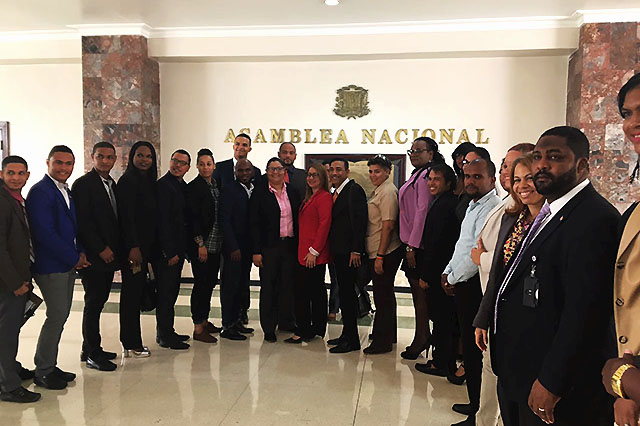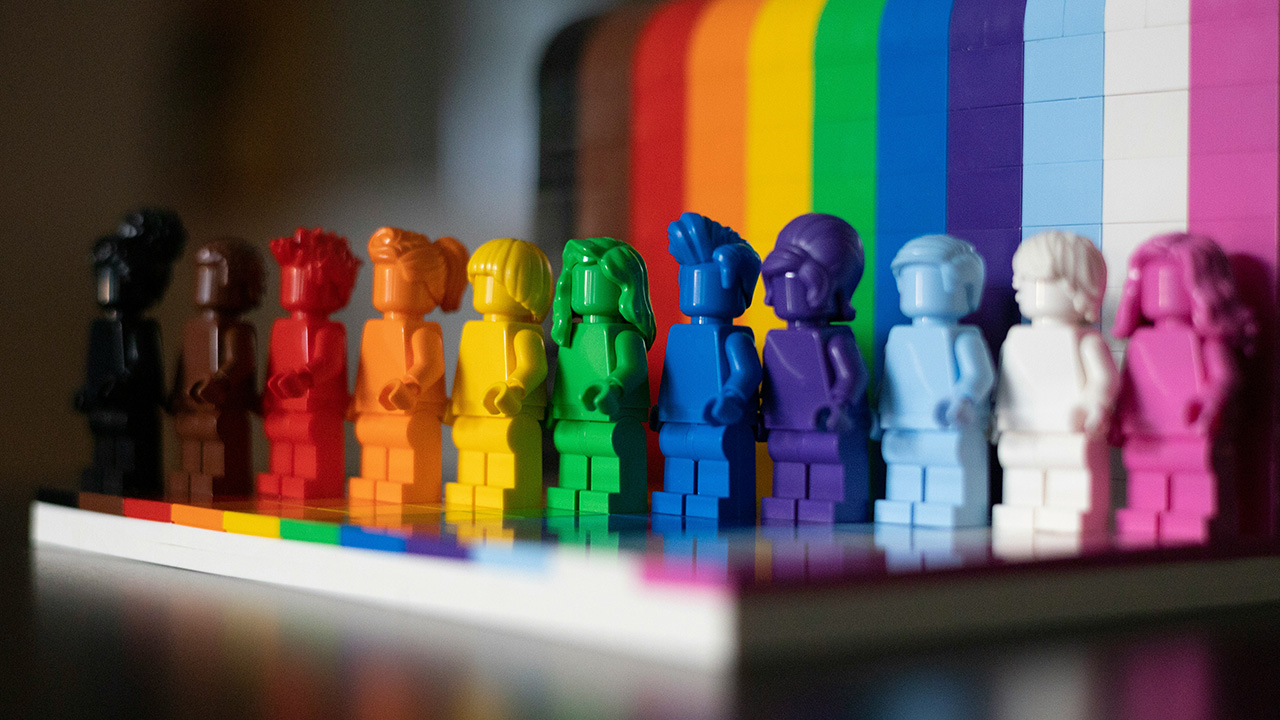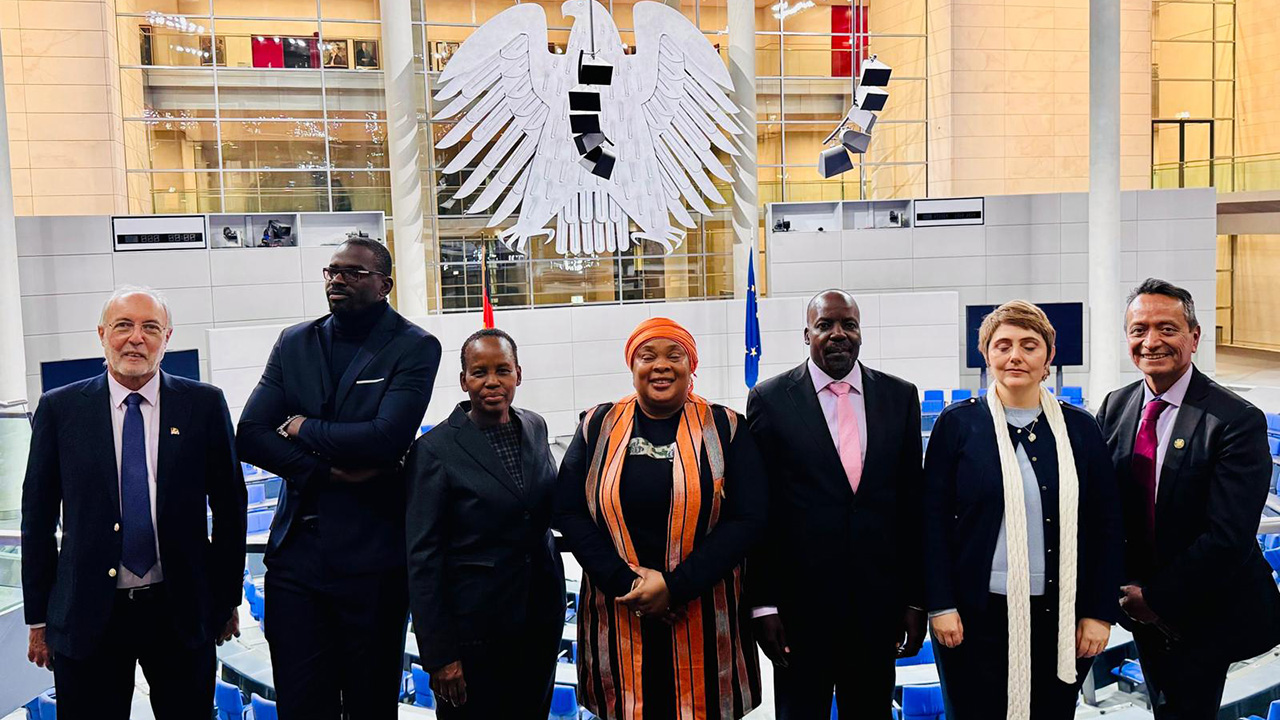
by Gloria Reyes, Member of Parliament from Dominican Republic and PGA member
On July 14, a group of representatives of the LGBTI community of Dominican Republic made an official visit to the National Congress, where they met with a number of parliamentarians, myself included. The visitors were students of the LGBTI Dominican Republic School of Political Leadership, an initiative of the Gay & Lesbian Victory Institute and the local civil society organization Dominican Diversity, aimed at reinforcing the leadership of about thirty openly LGBTI Dominican residents and equip them with adequate tools to advance the equality agenda, through participation in the democratic process, interaction with political institutions of the country and inclusion in electoral processes.
For the students, most of whom had never entered the National Congress building, it was a very enriching experience, as they had the opportunity to have a conversation, in most cases for the first time, with some of their elected political representatives. As parliamentarians, we shared our experiences and tried to offer practical political advice to our visitors, who were very motivated to continue developing their leadership skills and become future candidates.
The students made a wonderful impression on me. Their enthusiasm for getting involved in public life and their desire to work for the common good are to be commended. I think the meeting was inspiring for both, them and us, as we were able to learn from each other in a friendly environment. So much so, that as a result of the meeting, two lesbian participants contacted me to join the political party to which I belong, the Modern Revolutionary Party.
The existence of openly LGBTI elected officials, explained the organizers of the School, has a dual educational effect on the population: on the one hand, it is a tool for raising awareness within State institutions, making it easier for other public officials to face the LGBTI reality; and, on the other, it provides positive roles for young LGBTI people. The presence of openly LGBTI elected people is, as organizers said, key to achieving social equality, since it allows for the adoption of measures aimed at achieving empowerment and legal equality, reducing violence and mitigating stigma and social discrimination.
Dip. Fidel Santana, chair of the Human Rights Commission, and Dip. Magda Rodríguez, chair of the Gender Equity Affairs Commission (both PGA members), as well as Dip. Amado Díaz, chair of the Labor Commission, Dip. Marcos Cross and Dip. Orlando Martínez joined me at this meeting in the Chamber of Deputies.
Rosanna Marzan, Executive Director of Dominican Diversity, stated: “The School has provided the necessary tools to enable LGBTI students and leaders from different provinces to get involved in politics, including in the next electoral process of 2020, and to contribute to Dominican democracy in their own right, enter the spaces of participation of political parties and possibly aspire to and be elected to elective positions.”
As a culmination of this valuable initiative, the first graduation ceremony of students from the LGBTI Dominican Republic School of Political Leadership was held in Santo Domingo last month, with the assistance of donors, partners, national political figures, diplomatic representatives, members of the National Congress, students, friends, relatives and representatives of the national press, under the motto: “LGBTI Dominican people also contribute to democracy.”
Indeed, regardless of our sexual orientation or gender identity, we all have much to contribute to Dominican democracy. And we, parliamentarians, have a key role to play in defending and promoting the rights and inclusion, in politics and in other social fields, of the most vulnerable groups, such as LGBTI people. If we all play our part, equality among all Dominicans is at our fingertips.




